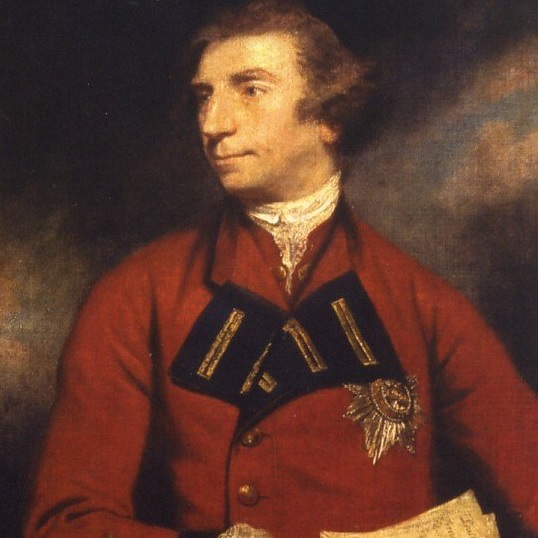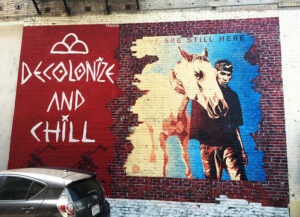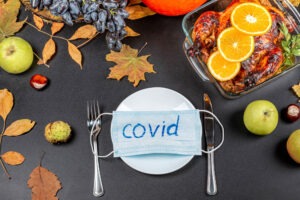
On Tuesday, January 26th, Amherst College in Massachusetts finally dumped its unofficial mascot, “Lord Jeff,” with the board of trustees declaring that it would refrain from “employ(ing) this reference in its official communications, its messaging and its symbolism.”
And it is well past time, because “Lord Jeff” the mascot derives from Lord Jeffrey Amherst, a British commander in the French-Indian War and the ugly individual who came up with the idea of giving smallpox-infected blankets to Native Americans—translation: offensive biological warfare—a crime against humanity in current terms. Here is a little history lesson from Wikipedia:
One of the most infamous and well-documented issues during Pontiac’s War was the use of biological warfare against the Native Americans. The suggestion was posed by Amherst himself in letters to Colonel Henry Bouquet. Amherst, having learned that smallpox had broken out among the garrison at Fort Pitt, and after learning of the loss of his forts at Venango, Le Boeuf and Presq’Isle, wrote to Colonel Bouquet:
Could it not be contrived to send the small pox among the disaffected tribes of Indians? We must on this occasion use every stratagem in our power to reduce them.
Bouquet, who was already marching to relieve Fort Pitt, agreed with this suggestion in a postscript when he responded to Amherst just days later on July 13, 1763:
P.S. I will try to inocculate [sic] the Indians by means of Blankets that may fall in their hands, taking care however not to get the disease myself. As it is pity to oppose good men against them, I wish we could make use of the Spaniard’s Method, and hunt them with English Dogs. Supported by Rangers, and some Light Horse, who would I think effectively extirpate or remove that Vermine.
In response, also in a postscript, Amherst replied:
P.S. You will Do well to try to Innoculate [sic] the Indians by means of Blankets, as well as to try Every other method that can serve to Extirpate this Execrable Race. I should be very glad your Scheme for Hunting them Down by Dogs could take Effect, but England is at too great a Distance to think of that at present.
Historians Elizabeth Fenn and Benedict Kiernan have shown, “Fort Pitt had anticipated these orders. Reporting on parleys with Delaware chiefs on June 24, a trader [William Trent] wrote: ‘[We] gave them two Blankets and an Handkerchief out of the Small Pox Hospital. I hope it will have the desired effect.’ The military hospital records confirm that two blankets and handkerchiefs were ‘taken from people in the Hospital to Convey the Smallpox to the Indians.’ The fort commander paid for these items, which he certified ‘were had for the uses above mentioned.’ Historian Elizabeth Fenn has documented ‘the eruption of epidemic smallpox’ among Delaware and Shawnee Indians nearby, about the time the blankets were distributed.”
Sign up for our free newsletters
Subscribe to NPQ's newsletters to have our top stories delivered directly to your inbox.
By signing up, you agree to our privacy policy and terms of use, and to receive messages from NPQ and our partners.
Back to this century, the trustees’ statement reads, “Amherst College finds itself in a position where a mascot—which, when you think about it, has only one real job, which is to unify—is driving people apart because of what it symbolizes to many in our community.”
You think?
Tara Houska, writing for Indian Country Today, puts the move in depressing context:
While Amherst College moves past a mascot considered offensive, the debate surrounding the Washington football team and other Native American mascots continues. Nearby Amherst College, Tewksbury Memorial High School will consider whether to drop its “Redmen” nickname this week.
At the national level, the NFL’s lawsuit against Native Americans opposing the Washington team moniker and logo now sits in the U.S. Court of Appeals.
Meanwhile, at Oxford University, a statue of Cecil Rhodes looms over the campus. Rhodes founded the De Beers diamond company, is the guy for whom the Rhodes Scholarship is named, and was a dyed-in-the-wool racist who championed racial segregation in South Africa.
Tadiwa Madenga, a student at Oxford and an organizer with the Rhodes Must Fall campaign, says, “We understood that he came and plundered the land, as many colonizers did, and that a lot of people died from what he did. And there’s a lot of structural injustice that resulted from the acts that Rhodes committed.”
“When I look at the statue, I know of that legacy, but I also see the way Oxford wants to imagine itself today,” Madenga says. “It is only now that we have made them engage with this history, that they have decided that perhaps they don’t condone his actions.”
There are many critics of such challenges who claim that the students are attempting to whitewash history (oddly phrased, given the circumstances) but we have to wonder if they would feel the same were the figure looming over them each day, or presented as a mascot, a figure from the Third Reich? Genocide and apartheid are hard to overlook when your social circumstances still reflect that reality.—Ruth McCambridge













